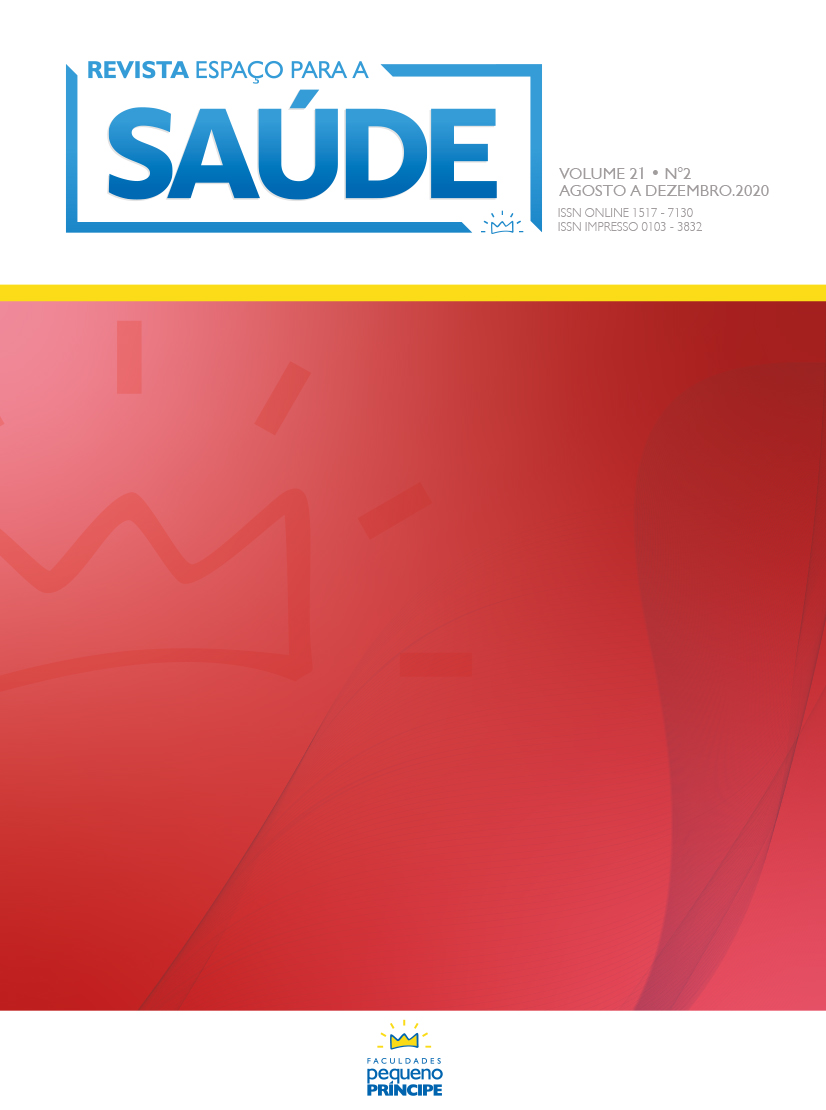Graduandos de sete cursos de saúde: entre transtornos mentais comuns e o rendimento acadêmico
DOI:
https://doi.org/10.22421/15177130-2020v21n2p42Keywords:
Estudantes de Ciências da Saúde. Saúde Mental. Qualidade de vida.Abstract
Objetivou-se investigar a qualidade de vida e o sofrimento psíquico em 254 graduandos de sete cursos de saúde da Universidade Estadual da Paraíba. Utilizou-se: questionário sociodemográfico; e questionário complementar com uma questão de múltipla escolha, quatro questões dicotômicas e duas questões abertas, elaboradas com base em indicadores gerais de Transtornos Mentais Comuns – TMC, vivências acadêmicas e saúde, respectivamente. Os dados foram analisados por estatísticas descritivas no SPSS-23 e no GNU PSPP 1.0.1 (porcentagem, média e desvio-padrão). Como resultados, 61,2% não se sente satisfeito com o próprio rendimento acadêmico e 75,7% relatou ansiedade. Análise de conteúdo explicitou sobrecarga e tempo reduzido para lazer e atividades físicas. Destaca-se a necessidade de identificação precoce de TMC nesta população, visando melhor desempenho pessoal e profissional, considerando a promoção de fatores de proteção e a possibilidade de serviços de apoio em saúde mental.
Downloads
Published
How to Cite
Issue
Section
License
Copyright (c) 2020 Espaço para a Saúde

This work is licensed under a Creative Commons Attribution 4.0 International License.
Authors who publish in this journal agree to the following terms:
- Authors grant the journal the copyright, with the work simultaneously licensed with Creative Commons CC BY, which allows the sharing of work with recognition of authorship and initial publication in this journal.
- Authors are authorized to assume additional contracts separately, for non-exclusive distribution of the version of the work published in this journal (e.g., to publish in an institutional repository or as a book chapter), with authorship recognition and initial publication in this journal.
- Authors are permitted and encouraged to publish and distribute their work online (e.g., in institutional repositories or on their personal page) at any point before or during the editorial process, as this can generate productive changes, as well as increase the impact and the citation of the published work (See The Effect of Free Access).






